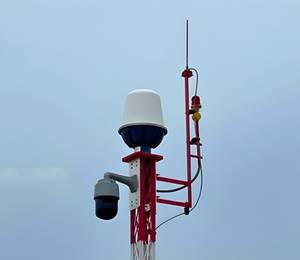With the Covid-19 pandemic driving an almost immeasurable increase in the number of companies and individuals taking their worlds almost entirely online, the need for 24/7, always-on network connectivity has increased also, and research from Kentik claims to have revealed the new normals of networking.
Ultimately, the network intelligence platform provider said, the 2020 global pandemic has only intensified the importance of networking. Yet while maintaining highly performant, reliable and secure networks, these teams have also faced new and unprecedented challenges, from supply chain delays and network capacity concerns to the complexities of work-life balance amid work-from-home orders.
The goal of the survey was to surface new challenges and opportunities for network teams, and to do so, Kentik took input from 220 networking professionals across the globe. A majority of survey respondents (55%) reported working at large companies of more than 1,000 employees, while 22% worked in a medium-sized company with 100-999 employees. Just under a quarter worked at small companies with fewer than 100 employees. Kentik also split the respondents into two groups depending on company size: 55% of respondents were from enterprise companies, and 45% of respondents from small and medium-sized enterprises (SMEs).
Among the top-line findings of the research were varying levels of productivity reported among the different groups while network-capacity shortages were causing concern for some.
Regarding productivity levels, the study showed that the largest proportion of networkers (47%) reported feeling more productive while working from home during the coronavirus pandemic, compared with pre-pandemic times. That includes a group of networking professionals (19%) who said they felt way more productive. However, a fifth reported feeling less productive and a third said they’d had no change in productivity.
Kentik noted that even before the pandemic, it was typical for network teams to provision more than enough network capacity for their organisation’s needs. Yet this requires more datacentre space, cages, racks, servers, routers, and so on, and as part of that, labour via field technicians who need to physically go to datacentre sites to build out the capacity. When Kentik asked whether network professionals were concerned about a shortage in network capacity, 65% of survey respondents expressed concern. Worryingly, almost two-thirds (65%) of networking professionals reported feeling extremely concerned or somewhat concerned about their organisation’s network capacity during the pandemic.
When looking at the numbers by company size, the survey found that 71% of enterprise networkers expressed concern for network-capacity shortages. This is compared to 56% of SME respondents. Kentik suggested that this was because more enterprise networkers may have expressed their concerns because many enterprises are working with multiple technology suppliers, which it said could take longer to make system and service changes.
Delays were also found, and increasing, in internet infrastructure supply chains. While 28% of network professionals said they did not see any supply chain delays for their network infrastructure as a result of Covid-19, as many as 72% of respondents reported that they were experiencing delays anywhere from one week to more than two months.
The cloud was also in high demand. Despite reports of increased cloud bursting to give networks more capacity, the majority of respondents (54%) said their organisation had not increased its reliance on the cloud during the global pandemic. This, said Kentik, could indicate use of and a trend towards hybrid infrastructure.
Despite a huge increased reliance on networks, there was no huge uniform increase in budget for networking. While 36% of respondents said budgets had either significantly or somewhat increased, two-fifths of respondents said their networking budgets had not changed due to economic uncertainties caused by the pandemic. In fact, work-life balance was also a top networking challenge for many, with just over half of respondents (51%) expressing concern in this area. This, said Kentik’s report, was likely in part due to the increased pressure that work-from-home and shelter-in-place policies have put on networkers to maintain network performance and reliability.
Commenting upon the findings of the report, Kentik CEO and co-founder Avi Freedman, said that one of the things that the company had continued to observe throughout the global pandemic was that the internet was working amazingly well. “Businesses and individuals have been able to connect and quickly move through online services, sites and applications with very minimal disruption, despite increased traffic spikes which some assumed could threaten connectivity,” he remarked. “At the same time, however, the findings from our new survey remind us that, behind the internet's great stability, there are many network teams that are managing vast, complex and diverse infrastructure. Some of these teams are facing unprecedented concerns, such as internet infrastructure supply chain delays and network capacity shortages, and they must learn to navigate with deeper levels of network visibility and both personal and professional agility.”











